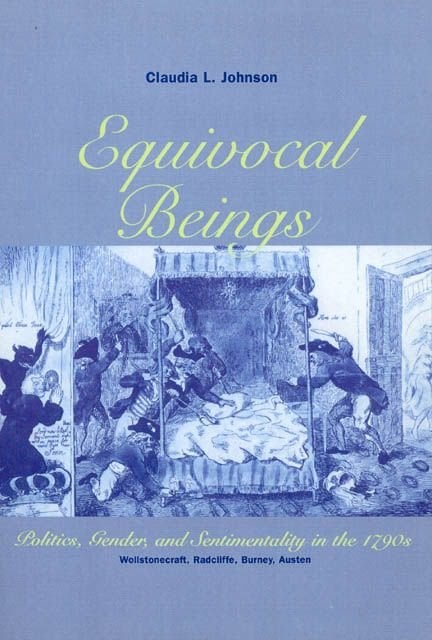
Equivocal Beings
In the wake of the French Revolution, Edmund Burke argued that civil order depended upon nurturing the sensibility of men&;upon the masculine cultivation of traditionally feminine qualities such as sentiment, tenderness, veneration, awe, gratitude, and even prejudice. Writers as diverse as Sterne, Goldsmith, Burke, and Rousseau were politically motivated to represent authority figures as men of feeling, but denied women comparable authority by representing their feelings as inferior, pathological, or criminal. Focusing on Mary Wollstonecraft, Ann Radcliffe, Frances Burney, and Jane Austen, whose popular works culminate and assail this tradition, Claudia L. Johnson examines the legacy male sentimentality left for women of various political persuasions. Demonstrating the interrelationships among politics, gender, and feeling in the fiction of this period, Johnson provides detailed readings of Wollstonecraft, Radcliffe, and Burney, and treats the qualities that were once thought to mar their work&;grotesqueness, strain, and excess&;as indices of ideological conflict and as strategies of representation during a period of profound political conflict. She maintains that the reactionary reassertion of male sentimentality as a political duty displaced customary gender roles, rendering women, in Wollstonecraft\'s words, \"equivocal beings.\"
£33.46
Similar Deals
Save 2%

Clean Eating for Busy Families, revised and expanded
£12.99
£12.85
From Wordery
Save 23%

The Best Veggie Burgers on the Planet, revised and updated
£14.99
£11.66
From Wordery
Save 25%

The Living Well Without Lectins Cookbook
£18.99
£14.39
From Wordery
Save 4%

Knock Knock This Week Pad
£6.95
£6.71
From Wordery
Save 16%

Rosemary Gladstar\'s Herbal Recipes for Vibrant Health
£11.99
£10.17
From Wordery

Theories of Childhood, Second Edition
£26.50
From Wordery
Save 10%

Concrete - Case Studies in Conservation Practice
£45.59
£41.22
From Wordery
Save 32%

The Lean Farm
£22.50
£15.48
From Wordery


